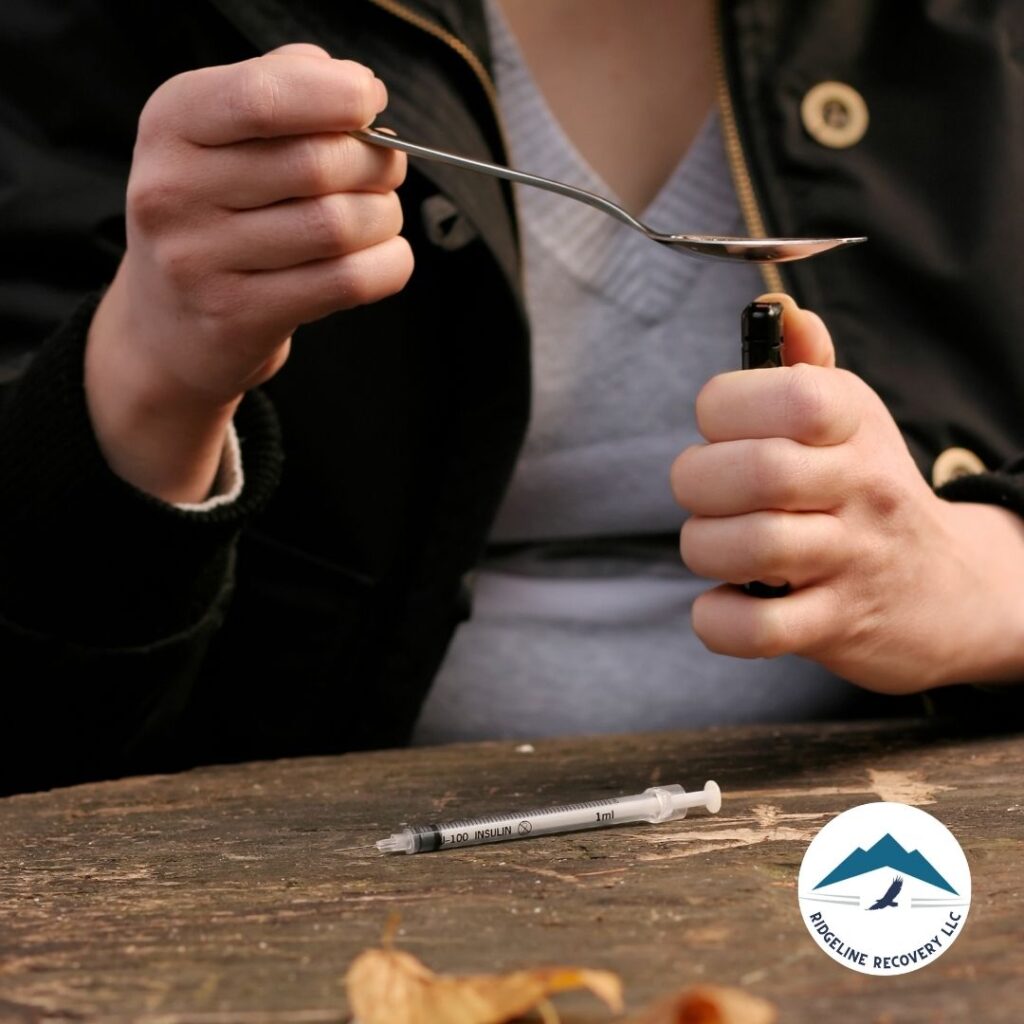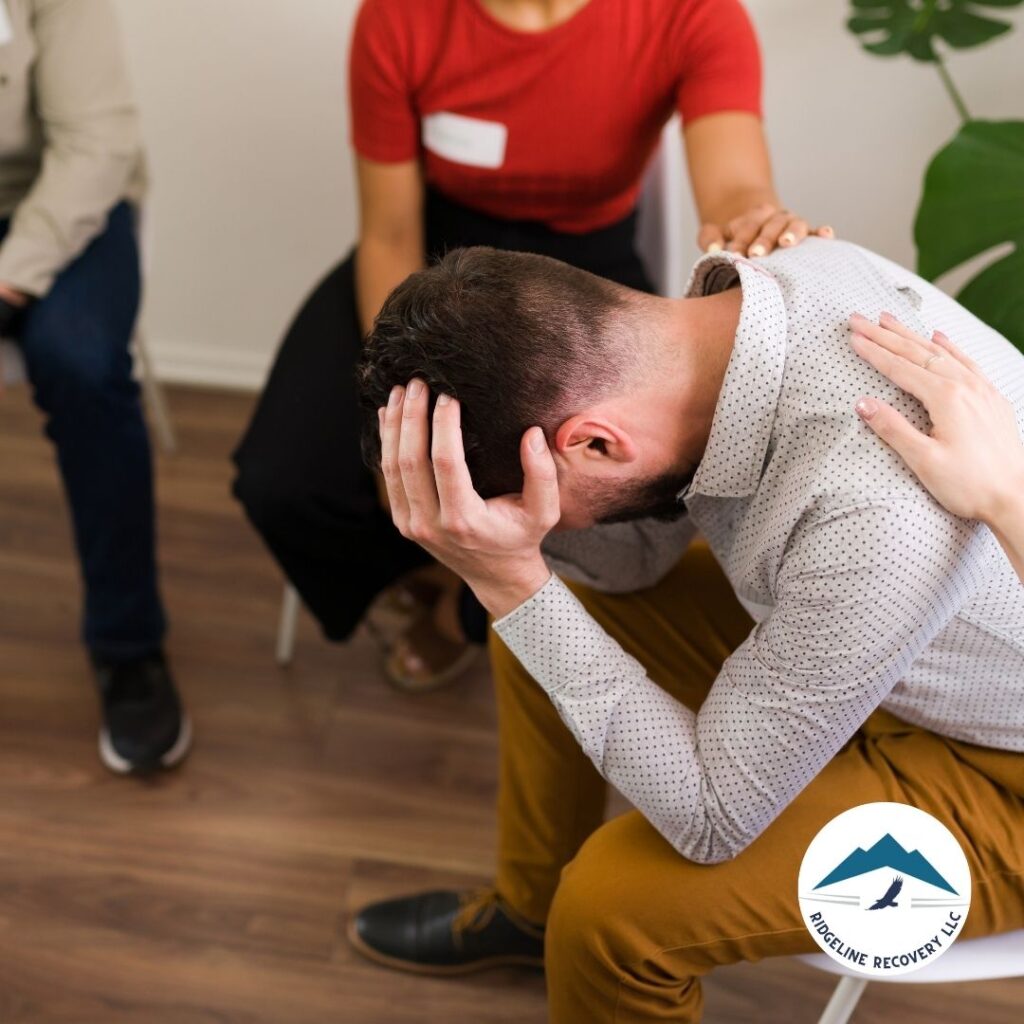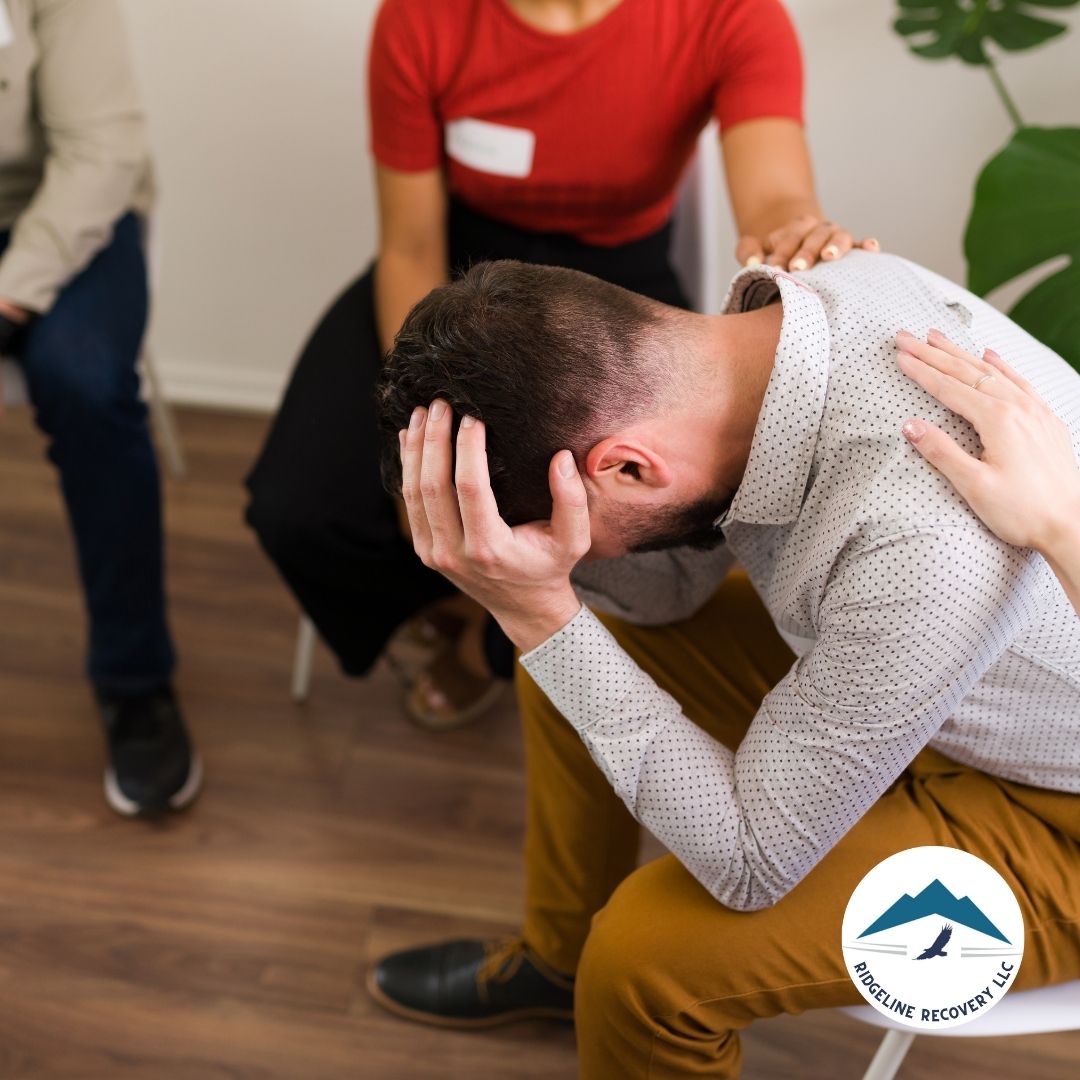Addiction Therapy Services?
“Am I ever going to beat this?”
“What’s the right step next?”
“Can I really stay sober when everything in me is telling me to quit?”
These are the thoughts that keep people up at night.
And if you’re reading this, you might be asking yourself these same questions.
I get it.
Sobriety isn’t just about quitting the substance. It’s a radical shift in mindset, lifestyle, and everything you know.
So, if you’re looking for help on this journey – with real support, tools that actually work, and professionals who know how tough this is – you’ve found the right place.
At Ridgeline Recovery LLC in Columbus, Ohio, we know the path to sustainable sobriety.
And we’re going to break it down.
Let’s get real about what Addiction Therapy Services can do for you and why they work when you’re ready to rebuild.
Why Addiction Therapy Services? (And Why Columbus?)
Before we talk therapy, let’s get clear on what addiction actually is.
Because it’s more than just a “bad habit.”
It’s a full-on physical and mental lock-in that rewires the brain to make you feel like you need that substance just to survive.
Addiction Therapy Services break that cycle.
And Columbus?
It’s a powerhouse of resources.
You’ve got access to top-tier addiction therapy near me, mental health services near me, and programs tailored to everything from inpatient drug treatment centers near me to Vivitrol clinics near me.
The Real Work Behind Addiction Therapy Services
Think of addiction therapy as training for a new life.
Not just avoiding triggers or staying away from old habits.
But building a totally new reality that doesn’t depend on substances.
And here’s the truth – that journey is different for everyone.
Some people need a program that dives into the psychological side of addiction.
Others need serious detox support, like Vivitrol clinics near me, or specific treatments for conditions like delirium tremens treatment.
Let’s talk about what each stage of addiction therapy looks like and how it all fits together.
Step 1: The Detox (Getting Clean and Staying Alive)
First things first – detox.
And let’s be real: this is where people get scared.
But Addiction Therapy Services are designed to guide you through it safely.
Depending on the substance, detox can mean different things.
If you’re dealing with alcohol, you might be facing delirium tremens treatment or withdrawal effects of things like Ativan.
For others, detox might mean managing withdrawal symptoms from drugs like xanax, dilaudid (the generic name for dilaudid is hydromorphone), or even the street drug combinations known as speedballing.
Good news?
With medical support and the right professionals, detox doesn’t have to feel like a death sentence.
Here’s what helps:
- Medications – Used to reduce cravings and ease symptoms.
- Inpatient Care – Facilities like inpatient drug treatment centers near me can help by providing 24/7 care.
- Vivitrol Clinics Near Me – Places like this provide injections to curb opioid cravings, making it easier to focus on the next steps.
Detox is the first step, and it’s non-negotiable.
But it’s not the endgame.
Step 2: Therapy to Rewire the Brain
After detox, Addiction Therapy Services focus on the rewiring.
Because let’s be honest, if you’ve been addicted, the brain isn’t working the way it should.
Think about it like a reset button.
Therapies at places like mental health clinics near me or mental health treatment centers near me provide strategies that actually change the brain.
Types of Therapy That Actually Work
- Cognitive Behavioral Therapy (CBT) – This one’s all about breaking negative thought cycles and replacing them with positive ones.
- Dialectical Behavioral Therapy (DBT) – Developed for people with intense emotions, DBT teaches you skills for managing those emotions without needing a crutch.
- Adventure Therapy for Treatment of Substance Use Disorder – Not your typical therapy. Adventure therapy uses physical challenges to help clients face fear, build confidence, and feel more alive.
- Family Therapy – Addiction affects everyone around you. Family therapy repairs these relationships and strengthens support at home.
- Trauma Therapy – Sometimes, addiction is linked to unresolved trauma. Trauma therapy dives deep into the past, working on the core issues that might’ve pushed you toward addiction in the first place.
Understanding Medications Like Vivitrol
For those struggling with opioid or alcohol addiction, Vivitrol can be a game-changer.
Unlike other medications, Vivitrol isn’t addictive.
It’s a monthly injection that blocks the effects of opioids and alcohol, so you don’t feel that rush.
And when you’re working through addiction therapy services, knowing that there’s a “safety net” can make all the difference.
It doesn’t fix everything, but it gives you a fighting chance to focus on the therapy that matters most.

Step 3: Mental Health and Addiction Therapy Services
Addiction doesn’t happen in isolation.
If you’re dealing with addiction, you’re often facing other mental health challenges, too.
Depression, anxiety, PTSD, you name it – these things fuel addiction.
Addiction Therapy Services in Columbus focus on addressing these issues head-on.
You don’t just get clean.
You learn how to live.
What Mental Health Therapy Looks Like
- Mental Health Counseling – Regular sessions with a mental health therapist near me can help you manage depression, anxiety, and stress that come with recovery.
- Dual Diagnosis Programs – These programs tackle both addiction and mental health issues, treating them as one.
- Medication for Mental Health – Sometimes, medication is necessary to manage symptoms of mental health disorders. It’s about stabilization, not substitution.
Step 4: Building a Real Life After Addiction
Now let’s talk about the long game.
Sobriety isn’t a 30-day sprint.
It’s a lifelong marathon.
Once you’ve gotten through detox, therapy, and mental health treatment, it’s about building a life that makes you want to stay sober.
And that’s what the best Addiction Therapy Services in Columbus are all about – preparing you for the real world.
Building a Sober Network
This is huge.
You need people around you who get it.
That’s why support groups, like AA or NA, are crucial for so many people.
They give you a tribe, a sense of belonging.
Plus, Columbus is loaded with sober houses and community groups where you can connect with others on the same journey.
Creating Healthy Routines
Sounds simple, but routines can be a lifesaver.
Addiction Therapy Services teach clients to establish daily habits that support sobriety.
Here’s what a solid routine includes:
- Sleep – Regular sleep keeps your mind sharp and your emotions stable.
- Exercise – Physical activity releases endorphins, which can counteract the “high” feeling you might crave.
- Healthy Eating – Addiction often leaves the body in rough shape. Good nutrition helps restore energy and mental clarity.
Staying Accountable
Even when you’ve finished addiction therapy services, accountability is key.
That might mean:
- Regular Check-Ins – Staying connected with a mental health therapist near me or a counselor keeps you grounded.
- Sponsor Support – Many recovery programs offer sponsors – people who’ve been through it and can keep you on track.
- Tracking Milestones – Celebrate small wins along the way. Every day sober is a victory.
The Real Impact of Addiction Therapy Services
Getting sober is hard.
But staying sober?
That’s where the work really begins.
Addiction Therapy Services give you the structure, support, and tools you need for that long-term success.
From detox to therapy to life skills, it’s a full-circle approach.
And here’s what really matters – you’re never alone on this path.
At Ridgeline Recovery LLC, we’re here to guide you every step of the way.
Sobriety is possible.
And if you’re in Columbus, Ohio, you’ve got the resources to make it happen.
The Journey After Addiction Therapy Services: What Comes Next?
When you step out of a structured addiction therapy program, it can feel like standing at the edge of a cliff.
There’s excitement because you’ve made it this far.
But there’s also uncertainty because, let’s face it, real life doesn’t come with guide rails.
In Columbus, you have access to some of the best addiction therapy services, mental health support, and recovery programs that give you the tools to keep moving forward with confidence.
But let’s go deeper – what does it take to make that shift from survival mode to sustainable sobriety?
Finding Your Purpose Post-Recovery
Addiction therapy services don’t just help you quit; they help you discover the reasons you want to stay sober.
If you want lasting change, it starts with finding a purpose.
Why?
Because purpose gives you something to hold onto, even on the hardest days.
Sobriety rocks when you’ve got a goal that pulls you forward.
Some practical ways to find purpose include:
- Setting Short-Term Goals: Not everything needs to be a lifelong goal. It could be something as simple as signing up for a local fitness class or reconnecting with family. Short wins keep you motivated.
- Exploring New Hobbies: Trying new things can open doors to passion. It doesn’t have to be life-changing; even simple hobbies like painting, hiking, or volunteering can offer joy.
- Getting Involved in Support Movements: Joining groups like the Sobriety Rocks movement or volunteering at an addiction rehab facility lets you give back. It’s purpose-driven and keeps you connected to others in recovery.
How To Build a Relapse Prevention Plan That Works
A relapse prevention plan isn’t just a piece of paper.
It’s your survival manual.
When life gets tough (and it will), this is the map that keeps you on track.
Here’s what to include in a solid relapse prevention plan:
Identify Triggers
Think about what’s pushed you towards substances before.
- People: Certain friends, coworkers, or family members might be triggers.
- Places: Specific spots, like bars or houses, can bring back memories.
- Emotions: Stress, loneliness, boredom – these feelings can be massive triggers if you’re not ready.
Recognizing these triggers doesn’t mean you avoid them forever, but it’s crucial to understand how they affect you.
Actionable Steps for Triggers
Once you know your triggers, it’s time to plan.
Here’s what that might look like:
- Have an Exit Strategy: If you’re in a situation that feels risky, have a way out. Maybe it’s an excuse you can use, or a friend you can call.
- Mindfulness Techniques: Practicing mindfulness can help you deal with emotional triggers in real-time. This could be as simple as deep breathing or grounding exercises when you feel overwhelmed.
- Lean on a Support System: Connect with a sponsor, counselor, or peer. They’ve been through it and can help you see things from a different perspective.
Resources and Support Systems in Columbus for Long-Term Sobriety
Staying connected to resources can make or break your recovery journey.
And Columbus is filled with support – whether you need mental health therapy, casey’s law assistance, or inpatient drug treatment centers.
Top Resources Available:
- Addiction Rehab Programs: These are structured environments where you can get ongoing support, therapy, and sometimes even job training. It’s a safe space to continue your growth post-recovery.
- Mental Health Clinics Near Me: Many people find that staying connected with a mental health therapist near me helps keep their mental well-being on track.
- Sober Living Homes: If you’re not quite ready to live alone, sober houses offer a safe and supportive environment. They’re filled with others on the same journey and can help ease the transition to independent living.
- Support Groups: In Columbus, you’ve got options. Whether it’s Alcoholics Anonymous, Narcotics Anonymous, or something else, support groups give you a community that understands the struggle.
Advanced Therapy Techniques for Sustainable Sobriety
Addiction therapy services today go far beyond traditional talk therapy.
Let’s break down some of the advanced therapy techniques that Columbus offers:
Adventure Therapy
Adventure therapy is exactly what it sounds like – therapy through activities like hiking, climbing, or team challenges.
Why does it work?
Because it teaches you to face fears, overcome challenges, and find joy in healthy ways.
These experiences can replace the adrenaline rush you used to get from substances.
Art and Music Therapy
For many, addiction creates an emotional numbness. Art and music therapy can help crack that open.
These therapies let you express feelings you might not be able to put into words.
And it’s been proven to reduce stress, improve mood, and give you a healthier outlet for tough emotions.
Animal-Assisted Therapy
Connecting with animals can help foster trust, companionship, and responsibility.
Some addiction therapy services in Columbus offer animal-assisted therapy as a way to promote healing.
Embracing Holistic Wellness in Addiction Therapy Services
A key part of sustainable recovery is total wellness.
Sobriety isn’t just about quitting a substance; it’s about creating a healthier, happier life overall.
Holistic approaches can make this possible by addressing the mind, body, and spirit.
Nutrition and Physical Health
Addiction takes a toll on the body.
To build it back, focusing on nutrition and fitness is vital.
This could include:
- Balanced Diets: Nutrition can improve mental clarity, reduce cravings, and boost overall energy. Programs at mental health clinics near me often offer nutritional counseling to help.
- Exercise: Physical activity releases natural endorphins, which can help combat the feelings of loss you might feel in early sobriety.
Meditation and Mindfulness
Mindfulness helps you stay present, and it’s a tool used in a lot of addiction therapy services.
It keeps you grounded, making it easier to recognize when emotions or cravings are creeping up.
Spiritual Practices
While this isn’t for everyone, spiritual practices like prayer, meditation, or attending a faith-based program can offer comfort and meaning.
In Columbus, some addiction therapy services offer Christian-based support if spirituality is important to you.
Reconnecting with Family Through Addiction Therapy Services
Family dynamics can be challenging in recovery.
Addiction doesn’t just affect the individual – it leaves scars on loved ones as well.
A big part of recovery is working to rebuild those relationships.
Family Therapy
Most addiction rehab programs offer family therapy because it’s such a vital part of the healing process.
This isn’t about pointing fingers.
It’s about open communication and rebuilding trust.
Family therapy gives everyone a safe space to express hurt, rebuild, and move forward together.
Long-Term Strategies to Avoid Relapse
Recovery doesn’t end after treatment.
If you want to stay sober, it takes ongoing effort and commitment.
Let’s look at some real strategies that work long-term.
Stay Involved in Therapy
The work doesn’t stop after rehab.
Regular check-ins with a mental health counselor near me or an addiction therapist keep you grounded and accountable.
Practice Self-Care
When you’re stressed, hungry, or tired, it’s easier to slip up.
Prioritize sleep, nutrition, and stress management as if your life depends on it – because it does.
Set Boundaries
Boundaries protect you from people and situations that don’t support your sobriety.
Some people may not understand your new lifestyle, and that’s okay.
But it’s your responsibility to protect your progress.
Build a Sober Social Circle
If you’re surrounded by people who use, staying sober is ten times harder.
Find a sober community in Columbus.
Connect with people who understand and support your journey.
Keep Learning About Addiction and Recovery
The more you understand addiction, the more equipped you are to handle it.
Read books, attend seminars, and stay informed.
Knowledge gives you power over the addiction that once controlled you.
Give Back
When you’re ready, giving back can be incredibly healing.
Volunteer at a local addiction rehab facility or join a support movement like sobriety rocks.
Helping others reminds you of how far you’ve come and keeps you focused on the path ahead.
Staying Resilient with Addiction Therapy Services: Strategies for Every Stage of Recovery
When it comes to addiction therapy services, understanding each stage of recovery is key. Every phase of recovery requires unique approaches, and by tailoring your strategies to these stages, you can build lasting resilience.
Early Recovery: Finding Stability in a New Life
In the earliest stage of recovery, everything can feel overwhelming. You’re building a foundation, and that foundation needs to be strong and stable.
Key Strategies for Early Recovery:
- Establishing a Routine: Developing daily habits that replace past harmful routines is essential. Your routine should include time for self-care, exercise, therapy sessions, and time with support groups.
- Identifying New Support Systems: Many find stability through addiction therapy services, but you can also lean on local resources like inpatient drug treatment centers, family support programs, and Columbus-based support networks to create a strong base.
- Learning Basic Coping Skills: Therapy can teach you coping mechanisms to handle urges and cravings. Mindfulness, cognitive behavioral techniques, and relaxation strategies are highly effective at this stage.
Building Strength: Addiction Therapy Services for the Long Haul
Once you’ve achieved initial sobriety, it’s time to strengthen that foundation. In this phase, addiction therapy services often include intensive outpatient programs, mental health support, and family therapy to deepen your resilience.
Key Elements for Long-Term Strength:
- Deepening Mental Health Work: Many people in this stage start seeing a mental health therapist near me or explore dual-diagnosis treatment if they struggle with anxiety or depression along with addiction.
- Reinforcing Relapse Prevention: This is when relapse prevention strategies become essential. You’ll revisit your triggers, understand the signs of potential relapse, and work closely with therapists to reinforce your coping tools.
- Exploring Advanced Therapy Options: Beyond talk therapy, advanced options like neurofeedback, EMDR (Eye Movement Desensitization and Reprocessing), and biofeedback are available in Columbus to help address trauma and emotional stress linked to addiction.
Thriving Beyond Recovery: Rediscovering Joy and Purpose

Sustained recovery brings more than just a substance-free life; it brings the chance to truly thrive. In this stage, addiction therapy services help you reconnect with your passions and sense of purpose.
Thriving Strategies in Recovery:
- Pursuing Personal Goals: Setting personal and professional goals can transform recovery into a journey of self-discovery. Try setting small, achievable goals like completing a certification, starting a new job, or taking up a new hobby.
- Investing in New Hobbies: Finding a healthy outlet is essential. Activities such as music, art, writing, or physical fitness not only bring joy but can also replace negative habits with constructive ones.
- Building New Relationships: Now is the time to cultivate friendships and relationships that support your journey. Many Columbus programs and community events create spaces for individuals in recovery to meet and build healthy connections.
Essential Types of Addiction Therapy Services for Comprehensive Care
In a city like Columbus, there are countless addiction therapy services available, each providing a unique approach to recovery. Here’s a breakdown of some effective types of therapy that support people at different recovery stages.
Cognitive Behavioral Therapy (CBT)
CBT is a staple in addiction therapy. This approach helps you recognize negative thought patterns that drive addictive behaviors and teaches you how to replace them with healthier thoughts and actions.
- How CBT Helps in Recovery: By understanding how thoughts influence actions, you can rewire your responses to stressors and cravings.
- Real-Life Application: You might practice responding to scenarios in therapy, such as facing triggers or handling stressful family dynamics, equipping you with actionable tools for real-life situations.
Dialectical Behavior Therapy (DBT)
Originally developed for treating borderline personality disorder, DBT has proven invaluable in addiction therapy. This type of therapy focuses on building emotional regulation, tolerance for stress, and healthy interpersonal relationships.
- Why DBT Works for Addiction: Many people with addiction also struggle with intense emotions. DBT helps you learn to handle these emotions constructively without resorting to substance use.
Family and Group Therapy
Recovery is a collective effort, especially when it involves repairing family ties. In Columbus, addiction therapy services often include family therapy sessions to rebuild trust, improve communication, and set boundaries that benefit both the person in recovery and their loved ones.
- Benefits of Family Therapy: Addiction affects families, so healing together strengthens everyone involved. Family therapy can resolve issues, rebuild trust, and educate loved ones on how to best support your sobriety.
Trauma-Informed Therapy
Addiction and trauma often intersect. Trauma-informed therapy helps you confront past traumas that may have fueled your addiction in a safe, supportive way.
- How It Supports Recovery: By processing trauma, you can break free from negative emotional cycles that might otherwise lead to relapse.
Understanding Addiction Therapy Services in Columbus: Tailored Support for Different Needs
Columbus offers a range of addiction therapy services, each tailored to address different aspects of addiction and recovery.
Faith-Based Therapy Programs
Many people find strength and guidance in faith-based therapy programs. Columbus is home to several facilities that integrate Christian principles, providing both spiritual and therapeutic support.
- How Faith-Based Programs Help: For some, faith provides a powerful sense of purpose. Faith-based programs align recovery with spiritual growth, giving people a moral framework for staying sober.
Holistic Therapy Options
Holistic addiction therapy services address the body, mind, and spirit. This includes yoga, meditation, acupuncture, and nutritional counseling to help people find balance and well-being.
- Holistic Healing for Addiction: By focusing on overall wellness, holistic therapies can reduce stress, manage cravings, and foster a positive mindset.
Outpatient and Day Treatment Programs
Outpatient and day treatment programs offer a flexible approach to recovery. These programs allow you to live at home while attending therapy sessions, which can be beneficial if you have work or family responsibilities.
- Who Benefits Most from Outpatient Programs? Outpatient programs are ideal for those who need ongoing support but can manage their daily responsibilities and routines without constant supervision.
Intensive Inpatient Programs
Some people need a highly structured, immersive environment to recover. Intensive inpatient programs provide round-the-clock support, therapy, and medical supervision, which can be critical in the early days of sobriety.
- When to Consider Inpatient Care: If you’ve experienced multiple relapses or have a severe addiction, inpatient programs can offer the focused care and safe environment needed to break the cycle.
Reintegration Support: Helping Individuals Transition Back into Society
A critical part of recovery is reintegration into society. This process can be difficult, but addiction therapy services in Columbus are designed to provide support for a smooth transition.
Employment and Vocational Training
Job stability is crucial for those in recovery. Many Columbus-based addiction therapy services include vocational training, resume assistance, and employment connections to support job placement.
- How Employment Aids Recovery: Stability and a sense of accomplishment in the workplace reinforce personal growth, reduce stress, and foster self-reliance.
Sober Living Homes
Sober living homes offer a structured environment where you can adjust to life after rehab. In Columbus, there are several sober living communities that provide a supportive space while you work, attend school, or engage in further therapy.
- Benefits of Sober Living Homes: By living among people in similar stages of recovery, you gain companionship, understanding, and shared accountability.
Community and Peer Support Programs
Isolation can be detrimental to recovery. That’s why Columbus has a range of community and peer support programs, including Alcoholics Anonymous and Narcotics Anonymous, as well as other specialized peer groups.
- Why Peer Support Works: Having a community of people who truly understand your struggles and successes provides encouragement and reduces the risk of relapse.
Frequently Asked Questions About Addiction Therapy Services in Columbus
How Long Do Addiction Therapy Services Typically Last?
There’s no set timeframe for recovery; it depends on individual needs. Some people benefit from short-term programs, while others need long-term or ongoing support.
- Short-Term Programs: Usually last 30 to 90 days, focusing on immediate sobriety.
- Long-Term Programs: Can last 6 months or more, with a focus on building sustainable skills for lifelong recovery.
What Role Does Mental Health Play in Addiction Therapy Services?
Mental health is often deeply intertwined with addiction. Treating both addiction and mental health issues simultaneously is known as dual diagnosis. Most Columbus facilities offer dual-diagnosis treatment, recognizing that managing mental health improves overall recovery outcomes.
Are There Services for Families Affected by Addiction?
Yes, many programs include family counseling and support. Addiction affects families, and involving loved ones in the therapy process helps build trust, resolve issues, and foster a supportive home environment.
1. What’s the difference between detox and rehab?
- Detox is just the start – it’s about getting the substance out of your system.
- Rehab, or Addiction Therapy Services, is where you do the real work – rewiring your brain, building new habits, and preparing for a sober life.
2. How long does it take to “feel normal” again?
- It’s different for everyone.
- With Vivitrol and therapy, many people start feeling mentally clearer within a few weeks, but full recovery is a longer journey.
3. Can I just quit cold turkey?
- It depends on the substance.
- For alcohol and some drugs, quitting cold turkey can be dangerous.
- Always consult a medical professional.
Continuing Care: The Lifelong Benefits of Addiction Therapy Services
Sobriety isn’t just an end goal; it’s a lifelong commitment. Addiction therapy services offer continued support even after achieving sobriety, emphasizing the importance of ongoing personal growth, self-awareness, and emotional resilience.
Transitioning to Aftercare
Aftercare programs provide a safety net after initial treatment. These programs include weekly therapy sessions, check-ins, and support groups that reinforce what you learned in primary care.
- Why Aftercare Is Essential: It’s during this period that many people face the real-life challenges of sobriety. Aftercare ensures you have the support to navigate these challenges without feeling isolated.
Call Us Now!
If you or a loved one is struggling with heroin or alcohol dependency, reach out to Ridgeline Recovery Center in Columbus, Ohio, today. At Ridgeline Recovery, we offer a path to hope and healing. Our comprehensive Addiction Recovery services include Addiction Therapy, Addiction Treatment, Vivitrol Clinic and specialized Mental Health Services designed to support your journey to recovery.
We provide Aftercare Programs and Peer Support to ensure you have ongoing assistance after treatment. Our dedicated team offers Case Management and Child Services for those needing extra support. For individuals who prefer a faith-based approach, we offer Faith-Based Recovery options.
Our programs feature Group and Individual Counseling, along with Medication-Assisted Treatment (MAT) to address your unique needs. We also have an Intensive Outpatient Program (IOP) and a Partial Hospitalization Program (PHP) for more structured care.
Our team includes Registered Nurse Services, Psychiatric Services, and Therapeutic Behavioral Services (TBS) to provide comprehensive support throughout your recovery process. We work with various Insurance Coverage plans to help you access the care you need.
Don’t wait—contact us now to start your journey toward a brighter future with Ridgeline Recovery.
For more stories and information Contact Us, visit our Blog page and Stories & Highlights.







